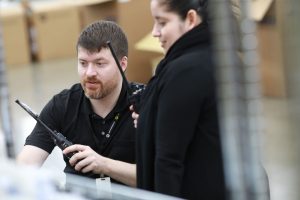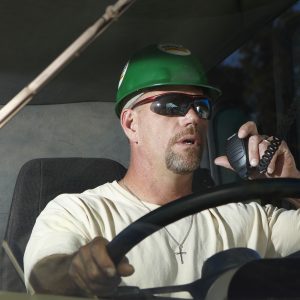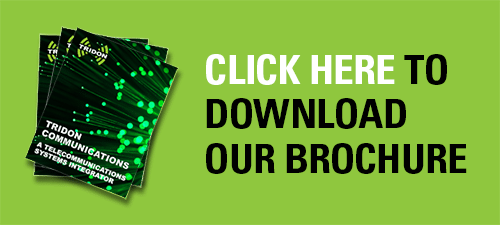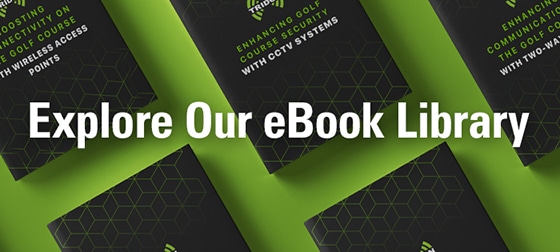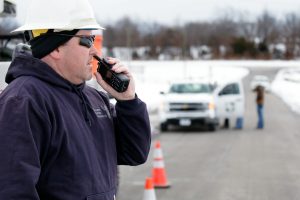 If you use two-way radios, point-to-point links or any other piece of equipment that relies on the RF spectrum, you’re probably aware that you need a frequency license. Even the smartphone in your pocket needs a frequency license to operate; it’s a cost of doing business cellular providers like TELUS factor into their day-to-day operations.
If you use two-way radios, point-to-point links or any other piece of equipment that relies on the RF spectrum, you’re probably aware that you need a frequency license. Even the smartphone in your pocket needs a frequency license to operate; it’s a cost of doing business cellular providers like TELUS factor into their day-to-day operations.
Canada’s radio frequency (RF) spectrum is regulated by the federal government through ISED (formerly known as Industry Canada) because the spectrum is a valuable resource. Businesses all over Alberta rely on it to maintain communications, productivity, and safety on the job and, by regulating the spectrum, ISED helps ensure fair access to frequencies across industries.
Getting a license for your frequencies may seem like a regulatory hoop you have to jump through, but it goes a long way towards the integrity of your communications system. Not convinced? Here are a few points that might change your mind.
Two-Way Radio Licenses Mean Private, Reliable Communications
Imagine a courier business in Edmonton equipped its fleet of delivery vehicles with mobile radios, but never obtained a license for the frequencies they were using. They may be able to communicate effortlessly for a time, but they’ll run into trouble if someone else goes through the proper channels and gets a license for the frequencies they are using.
The courier who chose not to get a license might find that radio communication from this other business is interfering with their own, and vice versa. Information may get lost in the confusion, and the whole purpose of having two-way radios installed in the fleet vehicles (clear, reliable communication) will be defeated. And, to make matters worse, the courier who cut regulatory corners won’t be able to go to ISED for support because they didn’t have a license, to begin with. They’ll either have to deal with the interference or start all over with new frequencies.
Getting a radio license means that this won’t happen. You’ll have secure, reliable and private access to the spectrum, and communications will flow with considerably greater ease. And, if somebody tries using YOUR frequencies without a license, it’ll be them that has to start over, not you.
You Don’t Have to Worry About Getting Caught
Starting from scratch isn’t the only risk of using frequencies without a license. There’s also the risk of hefty fines you’ll have to pay. ISED calls those fines‘ Administrative Monetary Penalties’ and they can range from tens of thousands of dollars to as much as $15 million for a business who repeatedly uses frequencies they don’t have the license to.
If you get fined, you can dispute it and even take the matter to court, but all of this represents a serious disruption to your business. You’re much better off getting frequency licenses from the start.
Open Frequencies May Not Be Enough
There are portions of the RF spectrum that can be used, license-free, by any business or member of the public. In Canada, for example, the 900 MHz band is open to anyone using Wi-Fi, which is a big help to people in remote and rural areas.
But, the problems with open frequencies are the same as using regulated frequencies without a license: reliability and privacy. Granted, you won’t face the risk of fines but, because these frequencies are fair game for anyone and everyone, you don’t know who is using them, who is listening, or when the best time to conduct your own communications actually is. You could find yourself competing with other businesses and recreational radio users for bandwidth. And, the end result? Delayed communications, a general lack of privacy, and frustration you could do without.
You’ll Avoid Delays
If you’re using a frequency that requires a license, you may be asked to provide it before your provider starts programming your radios. That is just part of their due diligence They don’t want to put you in a position that would leave you subject to fines any more than they want to interfere with another operation’s communications.
So, if you ask for frequencies to be programmed and you don’t have a license, you may be back to Square One. That means starting what could be a lengthy application process that leaves you and your project behind schedule.
You Don’t Have to Deal with The Federal Government Yourself
While there is a cost associated with frequency licenses, the real challenge for many businesses lies in the application process. There is a considerable amount of paperwork that goes with it, and if mistakes are made, it could mean a delay in getting the frequencies you need. That means a delay in programming those frequencies into your two-way radios, and that could mean delays, downtime and lost productivity for your business.
So, let Tridon take care of the paperwork for you.
Our Licensing Consultants and Client Support Specialists know the ins and outs of the licensing process. It’s no exaggeration to say that they’ve done it hundreds of times. When they work with you to build your two-way radio solution, let them know you’d like help with the licensing process, and they’ll take care of it. If you’d like more information, Contact Us.
Avoid the Process Altogether with Tridon Connect
As important as frequency licenses are, they may not be feasible for some businesses. In many cases, projects will only run for a few months, and the time it takes to get licensing may not be worth the effort. Fortunately, there is an alternative: Tridon Connect.
Tridon Connect is a private, digital, two-way radio network, fully licensed with ISED. If you need secure communications for your project, you can sign on to our network on a monthly subscription basis. You’ll have your own portion of the RF spectrum that we have licensed, which means you won’t have to worry about interference from other businesses. And, because the network is up and running, you won’t have to worry about licensing paperwork, fines, or infrastructure costs. Get in touch if you’d like to know more.
Getting Started
Whether you sign on to Tridon Connect or go it alone, it is highly recommended you get licenses for your two-way radio frequencies. The initial costs and effort you put in at the beginning will pay off in dividends when it comes to the consistent reliability of radio communications on the job.
As always, the team here at Tridon is here to help. If you have any questions, Contact Us, and we’ll get you the answers.
Tridon is a full solution Telecom Systems Integrator with CSA certification and licensed by APEGA. Our Engineering, Service and Tower Divisions collaborate with customers to build engineered solutions including communications systems design, tower inspections, and co-location, wireless broadband, fiber optic cabling, site security, and two-way radio communication.


